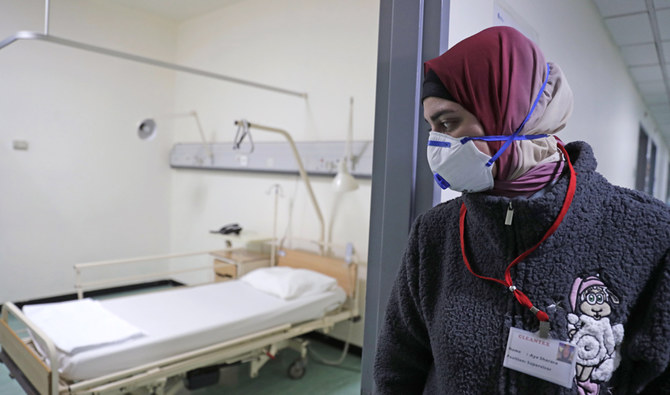
- ARAB NEWS
- 04 Jul 2025

Najia Houssari
BEIRUT: Lebanon is reducing flights to countries, including Iran, with confirmed cases of coronavirus.
The decision to include Iran was taken after a Lebanese national, who was traveling from the city of Qom to Beirut, was diagnosed with the virus. Lebanese authorities asked the flight’s 150 passengers to self-quarantine for 14 days from the date they left Iran.
Iran’s Health Ministry on Friday reported two more deaths among 13 new diagnosed cases of the COVID-19 virus, doubling the total number of deaths in the country. The virus has also spread to the UAE, Egypt and Israel.
Thousands of Lebanese people travel to Iran every year to visit Shiite holy sites in Qom and other cities.
Dr. Abdulrahman Al-Bizri, an infectious diseases specialist and a member of an emergency unit formed to counter the spread of the virus in Lebanon, said that while it was better to freeze some flights to Iran’s religious sites there remained challenges.
“It is easy to track down people who have returned from Iran through tour operators who have names and addresses, but our problem is with those who go to Iran for business (purposes), especially since the Lebanese do not need a visa to enter Iran, and these people cannot be reached to find out if they carried the virus to Lebanon or not,” he told Arab News. “The second problem that we face is at land-border crossings. There is a transport line between Lebanon and Iran through Syria and Iraq, and this matter needs urgent follow-up to monitor any cases that may enter Lebanon by land through legitimate or illegal crossings."
Two Iranian airlines, Iran Air and Mahan Air, have two daily flights between Iran and Lebanon. Their passengers normally travel for religious purposes.
The detection of coronavirus has overshadowed other events in Lebanon, such as the arrival of locust swarms and the new coalition government’s ongoing struggle to resolve the country’s social and political crises.
Prime Minister Hassan Diab chaired a meeting about the spread of the coronavirus. The meeting called for strict measures at Beirut airport and all border crossing stations, with those attending urging people not to panic.
Face masks became scarce at pharmacies once the confirmed coronavirus case was reported.
Dealers of medical equipment who had large quantities of the masks and other protective clothing had re-exported them in recent weeks, especially to countries battling the virus. The dealers were paid in US dollars - a boon as Lebanese banks are currently restricting dollar transactions - and they were able to buy medical equipment.
Lebanon’s Economy Minister Raoul Neama issued a decision preventing the export of devices, equipment, or medical personal protective equipment against infectious diseases until further notice.
“The Consumer Protection Directorate will monitor the prices of this equipment in pharmacies and will be strict with violators in order to prevent any exploitation that aims to make unjustified profits at the expense of the Lebanese,” he said.
The price of one face mask in some pharmacies reached around $5, compared to its pre-crisis price of $0.25 or less.
Lebanese Health Minister Hamad Al-Hassan visited government hospitals to see how ready they were to deal with coronavirus cases.
“Fear is legitimate, so is caution, but excessive panic is unnecessary,” he said, emphasizing the need to strictly abide by procedures at the country’s entry points and border crossings.
But fear of infection has not deterred people from demonstrating against corruption and institutions.
Mask-wearing protesters demonstrated in Beirut against banking policies under the slogan: “You will pay the price.”